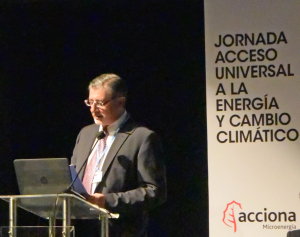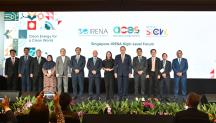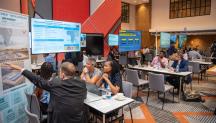

Power to the People: Renewables Can Bring Power to 1.3 Billion With No Access
Newsletter
Great strides have been made in the last two decades to bring electricity to the masses, with 1.7 billion more people connected today than in 1990. Latin America has been a pioneer in this regard, boasting an electrification rate of 95%.
But much more remains to be done.
More than 1.3 billion people (30 million in Latin America) currently live their lives without access to electricity, and 85 million live without clean, modern cooking fuels.
Today, on the sidelines of the UN Climate Change Conference in Lima Peru, a conference was held to address the issue of rural electrification. The Conference on Universal Access to Energy and Climate, organized by Acciona, highlighted projects underway to help address this issue and discussed funding, scalability and challenges to be overcome.

IRENA’s Director-General joined the event to deliver a keynote speech, stating:
“There is an urgent need to scale-up development efforts aimed at achieving universal access to modern energy services. To meet the 100% energy access target by 2030, the pace of electricity infrastructure expansion will have to nearly double. In this endeavor, renewable energy has a crucial role to play.”
He argued that renewable energy technologies are cost-competitive, mature, modular, adaptable, environmentally friendly and have been proven to work in off-grid environments from Peru to Bangladesh.
So if renewables are cheap, good for the environment, and work so well, why aren't they being implemented more? Here are a few reasons:
- Ideology: In order to scale up deployment, the ideology needs to move from a project to project approach, to a market-level approach with targeted incentives and enabling policies.
- Finance: We currently invest USD 9 billion a year on energy access, but USD 45 billion is needed to achieve universal access (but funds like ADFD are helping bridge this gap).
- Capacity building: Adequate training and education are needed to support local implementation and decrease independence on foreign know-how.
Renewable energy technologies offer a pathway to leap-frog traditional energy infrastructure and meet the dual objective of increasing socio-economic development in an environmentally sustainable manner.
More information on providing modern energy access for all with renewables.




